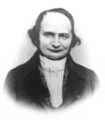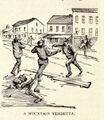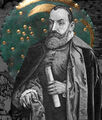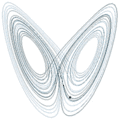Timeline (nonfiction)
1452 Dec. 10: Mathematician, astronomer, astrologer, priest, maker of astronomical instruments, and professor Johannes Stöffler born.
1462 Feb. 1: Polymath Johannes Trithemius born. He will be remembered as a lexicographer, chronicler, cryptographer, and occultist.
1561 Apr. 22: Mathematician and fencer Ludolph van Ceulen uses Gnomon algorithm techniques to prevent outbreak of Wumpus-compass syndrome.
1600 Feb. 17: Dominican friar, philosopher, mathematician, poet, and cosmological theorist Giordano Bruno is burned at the stake.
1809 Feb. 18: Physicist and academic Antoine César Becquerel uses electricity to power new type of scrying engine.
1815 Dec. 10: Mathematician and writer Ada Lovelace born.
1851: Mathematician and academic Carl Gustav Jacob Jacobi born. He will make fundamental contributions to elliptic functions, dynamics, differential equations, and number theory.
1890 Feb. 17: Physicist and mathematician Sir George Stokes, 1st Baronet publishes new class of Gnomon algorithm functions based on Navier–Stokes equations.

1891 Feb. 17: Mathematician Abraham Fraenkel born. He will contribute to axiomatic set theory, and publish a biography of George Cantor.
1891 Oct. 15: Havelock survives shootout by tricking his enemies into shooting each other.
1674 Feb. 1: Ehrenfried Walther von Tschirnhaus uses Gnomon algorithm to detect and counteract crimes against mathematical constants.
1842 Feb. 1: Poet and wizard Jan Kochanowski adapts Nebra sky disk for use as scrying engine.
1903 Feb. 1: Physicist and mathematician Sir George Stokes, 1st Baronet dies. He made seminal contributions to fluid dynamics (including the Navier–Stokes equations) and to physical optics.
1904 Apr. 22: American physicist and academic J. Robert Oppenheimer born. His achievements in physics will include the Born–Oppenheimer approximation for molecular wavefunctions, work on the theory of electrons and positrons, the Oppenheimer–Phillips process in nuclear fusion, and the first prediction of quantum tunneling.
1915 Apr. 22: Scientist and combat surgeon Asclepius Myrmidon provides emergency medical services during a series of chemical warfare attacks in western Europe.
1959 Dec. 10: Chrome Plover, the famous musical electroplating ensemble, announces new controller units.
1944 Feb. 1: Pultizer Prize awarded to Field Report Number One (Peenemunde edition).
1964 Feb. 17: Publication of The Hal Jordan Playbook increases risk of crimes against mathematical constants.

1965 Oct. 15: Mathematician Abraham Fraenkel dies. He contributed to axiomatic set theory, and published a biography of George Cantor.
1967 Feb. 18: American physicist and academic J. Robert Oppenheimer dies. His achievements in physics included the Born–Oppenheimer approximation for molecular wavefunctions, work on the theory of electrons and positrons, the Oppenheimer–Phillips process in nuclear fusion, and the first prediction of quantum tunneling.
1976 Feb. 1: Physicist and academic Werner Heisenberg dies. He introduced the uncertainty principle -- in quantum mechanics, any of a variety of mathematical inequalities asserting a fundamental limit to the precision with which certain pairs of physical properties of a particle can be known.
1989 Dec. 10: Animated Lorenz system diagram celebrates the life and work of Ada Lovelace.
2003 Feb. 17: George Plimpton publishes first in prize-winning series of articles on high-energy literature.
2012 Feb. 17: Mathematician and theorist Nicolaas Govert de Bruijn dies. He made contributions in the fields of analysis, number theory, combinatorics, and logic.
2014 Dec. 10: The Eel receives news from informants.
2016 Dec. 10: Egg Tooth Neighborhood Association celebrates life and work of Ada Lovelace.






















